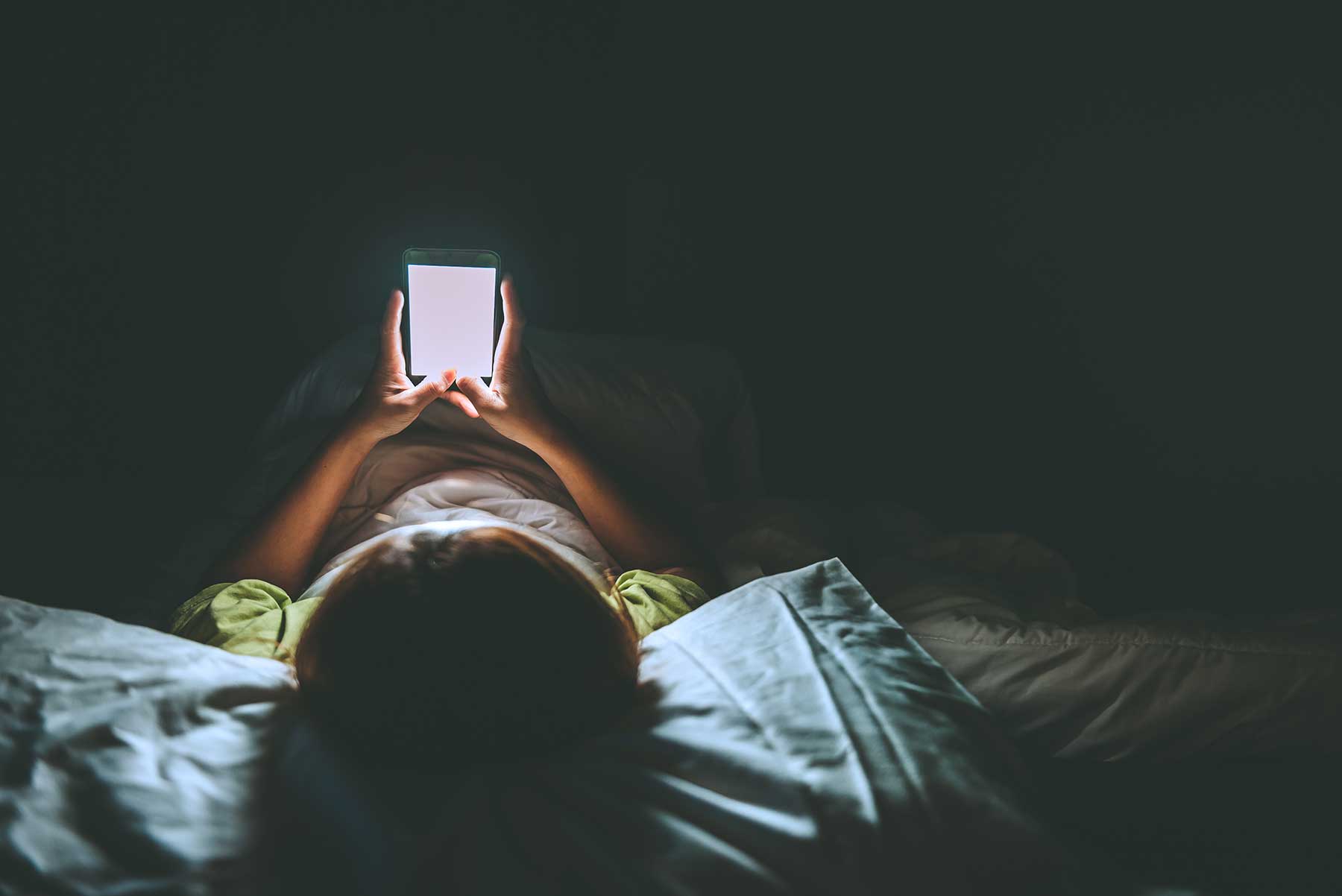
Smartphone and tablet use in Australia (and worldwide) has skyrocketed over the last decade. This has direct effects on sleep quality – particularly when the use of these devices occurs at night or, worse still, at bedtime.
Statistically in Australia:
- 95% of millennials own a smartphone
- 90% of millennials are online daily
- 75% of millennials use their smartphones as often or more than their computer
- Australian smartphone ownership overall now stands at close to 90% – and older Australians have been the key drivers of smartphone ownership growth since 2017
- 90% of people use multiple screens sequentially to complete tasks online (e.g. smartphone, tablet, computer)
- A staggering 71% of people sleep with their phones by the bed or even in their hand.
Mobile technology is addictive. All of this use of digital devices has a scientifically-proven impact on sleep.
Tablet and Phone Use – Side Effects on Sleep Quality
Use of a smartphone or tablet (or an e-reader that is backlit) at night leads to sleep deprivation and daytime exhaustion. Even though browsing the internet, reading your e-reader, or using social media may seem relaxing, it’s not a good idea at all before or at bedtime.
Harvard researchers found that if you use your phone or tablet within two hours of going to bed:
- You will take longer to fall asleep.
- Your REM (dreaming) sleep will be diminished.
- Your natural circadian rhythms (body clock) will be disrupted.
- Your natural secretion of melatonin (critical for quality sleep) will be suppressed.
- You’ll be less alert during the day.
In a scientific study by the University of Copenhagen in 2016, it was concluded that more than one-third of young adults who participated had at least one night per week of interrupted sleep directly due to smartphone use.
Among the biggest negative impacts of device use at night are the effects of blue light and the stimulation effect.
The Effects of Blue Light from Devices
Smartphones, laptops, televisions, computers, and some back-lit e-readers emit blue light. The brain interprets this as daylight. The result of this is that the production of melatonin (the “sleep” hormone that regulates circadian rhythm and is released at night) is suppressed. This stimulates the brain, making sleep more likely to be elusive or of poor quality.
Stimulation Effect
Many people use their phone as their alarm clock. When your phone is within arm’s reach, the temptation to check emails, social media, and to respond to notifications is too great for most of us to resist. We feel energised by these interactions and they quickly become addictive. There are also no external interruptions from your device late at night when everyone else is asleep. Use of this technology stimulates the brain and like any other stimulant, we crave more of it. The outcome is compromised sleep and exhaustion the following day. It’s an ongoing, vicious cycle with long term effects on our health and well-being.
Sleep Solutions
Health and well-being including sleep quality can be improved by setting limits on mobile device use and thus improving sleep hygiene.
- Avoid using digital screen devices including phones and televisions before bed.
- Use Night Shift on iOS or Wind Down Mode or Night Mode on Android devices at night.
- If available, use the Blue Light Filter setting on your phone, or
- Use apps like Flux to reduce blue light near bedtime.
- Give yourself a “technology curfew” – set a reminder on your phone two hours before bed to stop device use.
- Mute your phone overnight.
- If you are wakeful during the night, do not resort to using any device with a back-lit screen.
- Practice sleep hygiene, including a cool and dark room, a comfortable pillow, drinking chamomile tea before bed, and avoiding eating a heavy meal within a few hours of bedtime.
Improve Sleep Quality – Stop Snoring
One additional way to improve your sleep quality is to take steps to address issues like snoring. If you snore, SnoreMD may help you get a better night’s sleep. SnoreMD is a revolutionary sleep device that is worn in the mouth to help alleviate snoring. It repositions the lower jaw, helping to open the airways for clearer breathing and minimises snoring that occurs when the airways close.
Visit our sleep resources page to find a wealth of information relating to sleep health.
Contact us to learn more.


